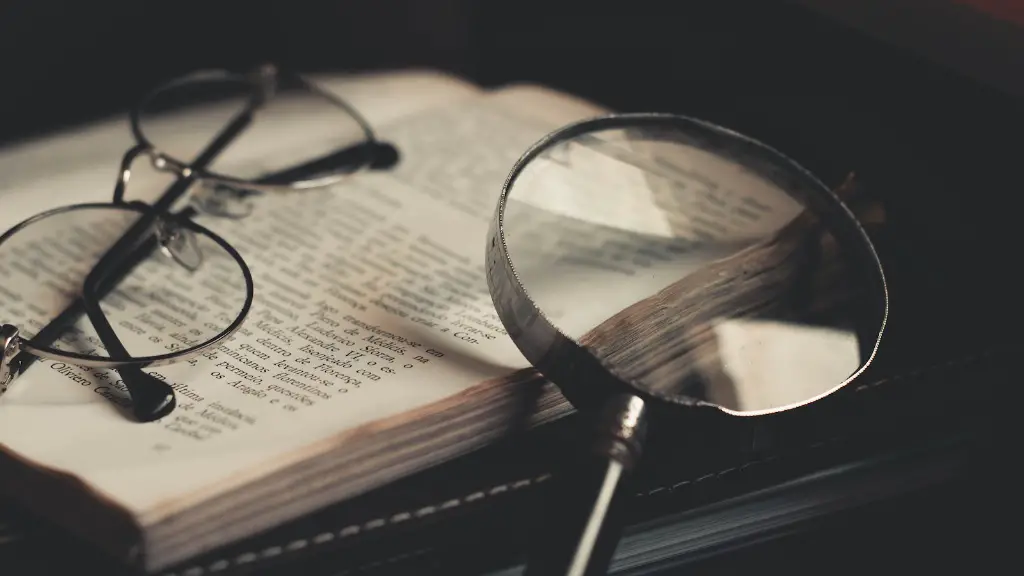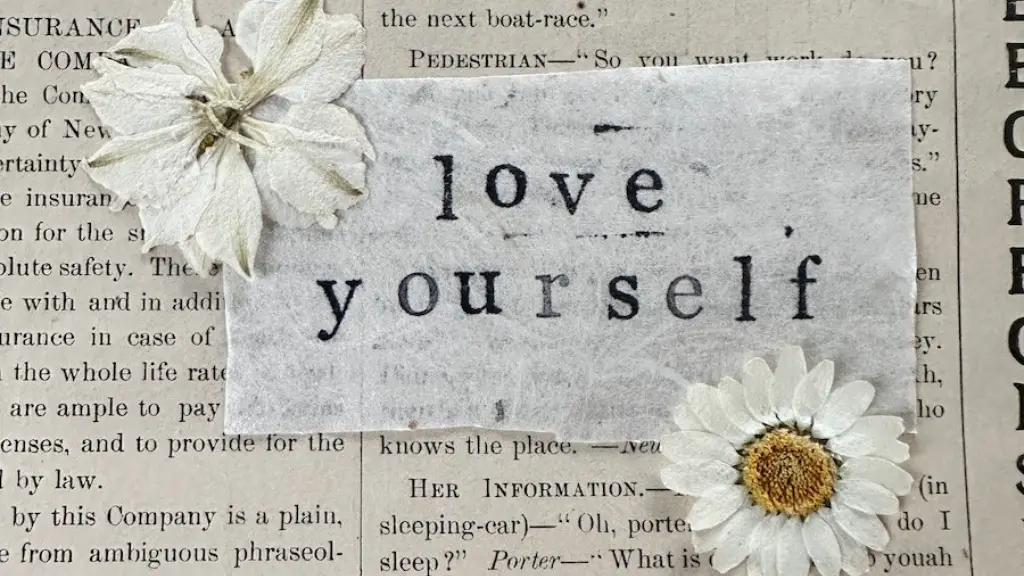Language is a powerful tool and is used in a variety of ways. Language is used to communicate and also to express. Poetry and literature are some ways in which people use language to express their emotions, ideas, and stories. Language, in particular, has been used to create a powerful impact on readers and thus, the language of poetry has developed over time.
Poetry is the arrangement of words in lines, often arranged according to their rhythm or meter, and their style, to create a unique framework or narrative. Poetry is an expression of feelings and thoughts by making use of figurative language like metaphor and simile, or even hyperbole and irony. Poetry makes use of creative tools such as alliteration, assonance, consonance, onomatopoeia, etc., which help to create a certain atmosphere that allows the poet to express their ideas effectively.
The language of poetry is often very vivid and has its own rhythm, alliterations, rhymes, and grammatical structure, which are all designed to enhance the meaning of the words. The language of poetry is often molded to fit the rhythm of the words and the emotion that the poet wishes to convey. This makes poets very careful of the words they choose, as it is important to them that their messages are being communicated in the most effective way.
Furthermore, the use of poetic language can affect the tone of a poem. It can be used to evoke emotions or create a certain atmosphere. It can also be used to communicate ideas in a straightforward way, or to give a certain level of depth and complexity to a poem. Poetry also often employs figurative language and imagery, allowing readers to visualize and connect to the poem in a deeper way.
Poetry has been used to communicate ideas and stories through the centuries. It is a form of expression that has had an immense impact on literature and even on society. Poets often used their craft to express a certain idea or feeling they experienced, but in a way that was easier to process and comprehend.
The language of poetry has seen a great evolution over time. In the Romantic period, for example, poets shifted towards the use of more figurative language and often chose to express their thoughts and feelings in a more eloquent and meaningful way. The modern poets of the 20th and 21st centuries, on the other hand, have explored new and innovative ways to express themselves and their ideas. The language used in poetry has become more direct, more concise, and more effective.
The language used in poetry can also help to convey the deeper meaning of a poem, as it can paint a vivid image. Poets often employ metaphors, similes, personifications, images, and other figurative devices to help bring the poem to life. The language of poetry can also be used to create a certain atmosphere or to direct the reader’s attention to a certain idea.
The Power of Language in Poetry
The power of language has been a popular topic in poetry for centuries. Many poets have explored the concept of language and its power to influence, shape, or express ideas. Through their works, they have shown how language can be used to evoke emotions, to create an atmosphere, and to convey a certain meaning.
The use of language in poetry is often seen as a tool to express a certain idea or feeling that cannot be expressed using more literal forms of language. By using metaphors, similes, and other figurative language, poets can convey a deeper meaning that may not be understood without carefully considering the language used.
Language can also shape the tone of a poem and affect the perceived emotion and atmosphere of a poem. Poets use language to control the tempo of their poem and to emphasize its message. They can choose to use poetic imagery to draw attention to a certain detail, or to evoke a certain emotion.
The use of language in poetry can also convey a particular underlying meaning. Poets often contain symbols, references and literary devices in their works to convey a deeper message or meaning beyond the literal. Through the use of poetic language, poets often attempt to make their poems stand out and be remembered.
The Effects of Poetry on Humanity
Poetry has often been thought to have a transformative effect on humanity. Historically, poets have been viewed as prophets or seers, who have the ability to communicate ideas and feelings that cannot be expressed through more literal forms of language. Poetry has often been seen as a form of communication that is based on feelings and emotions, as opposed to fact and reason.
Poetry has been seen to have the ability to evoke strong emotions, inspire creativity, and bring about change in people’s lives. Poetry can inspire people to take action and to think differently about the world around them. It can also encourage people to explore new perspectives on existing situations and to think outside of their comfort zone.
Through their works, poets often attempt to foster a deeper understanding of human nature and the world around us. Poems often inspire readers to see life in a different light or to explore a different viewpoint. Poetry can also help to break down divisions between cultures and classes, inspiring empathy, compassion, and understanding of the collective human experience.
The Role of Poetry in Society
Poetry has always had a major role in society, as it is seen to provide a powerful form of expression. Poetry allows us to explore our emotions in ways that are impossible using more literal forms of language.
Poetry allows us to explore ideas and challenges us to think differently about different topics. Through the power of language, poets can communicate the challenges faced by their own societies and those around them. They can often create a dialogue between those with different backgrounds and beliefs, helping to bring about understanding and unity.
Poetry is perhaps one of the most powerful forms of communication that can be used to share stories and inspire change in our society. Through poetic language, poets can encourage us to think deeply and to develop a better understanding of the world we live in.
The Reach of Poetry
Poetry is one of the oldest forms of writing, and can be seen in many cultures across the world. While certain cultures have their own traditions of poetic language and structures, certain elements remain constant. Poems are seen to have the ability to communicate ideas and feelings that are difficult to express with literal words. Through the power of language, poetry can bridge cultural and language barriers, inspiring a greater understanding and appreciation of different cultures and societies.
Poetry has also been seen to have a greater reach than other forms of writing. Poems can be shared through various media such as books, magazines, television, and the internet. This broadens their reach and allows them to reach out to a larger audience. Poems are also often accessible to anyone, regardless of education or economic status.
The Impact of Poetry Today
Poetry is still as popular today as it ever was, thanks to its ability to convey powerful messages and evoke emotions. Poems are often shared on social media, where they can quickly reach a greater audience and spark meaningful conversations. Today, we are seeing an influx of poets who are creating and sharing work that explores a range of topics and sujects, both personal and political.
The rise of digital media has also opened up a new platform for poets to explore and to create a greater impact. Through digital media, poets can spread their message quickly and effectively, allowing their work to reach out to a wider audience.
The language of poetry is a powerful tool that has been used for centuries to share stories, evoke emotions, and inspire change. Through the power of language and imagery, poets have been able to express their ideas and feelings in ways that are difficult to do with literal words. Poetry continues to be an important part of humanity and its power to communicate and to connect will no doubt continue to grow in the future.

